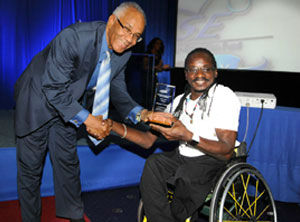The World Bank estimates that 63% of “Years of Lost Life” in Jamaica is due to non-communicable diseases. And, more than half of these deaths are caused by cardiovascular disesase (CVD), which results in hypertension, strokes, heart attacks, coronary and kidney disease. This poses a serious threat to the country’s economic and social development, as a large percentage of the people affected are less than 60 years old and in the most productive period of life.
The CHASE Fund provided a total J$7.2 million between 2004 and 2007 to help finance research designed to guide strategies to reduce the burden of chronic disease on the society. The most extensive study of its kind in the developing world, the ground-breaking research project was conducted by researchers from the Tropical Medicine Research Institute (TMRI) at the University Hospital of the West Indies, and involved 1,500 -1,700 teenagers whose development the TMRI monitored from their birth in 1986.
It was undertaken in two phases, and it confirmed preliminary evidence that early life factors contribute to the risk of non-communicable diseases, including CVD. The sample group displayed a pre-disposition to hypertension, they had hypercholesterolemia, high levels of self-reported asthma and a tendency to obesity.
Professor Rainford Wilks, Principal Investigator on the research team said these findings highlighted the urgent need for preventive interventions.
“With early detection of health risks, we can effectively avert the negative consequences of cardiovascular disease. This will benefit approximately 1.1 million Jamaicans in the 10-25 age cohort, which represents approximately 45% of the population. The results of this study will also be useful to health planners in other developing countries with similar ethnic and economic backgrounds.”
– Professor Rainford Wilks, Senior Researcher in Cardiovascular Epidemiology







